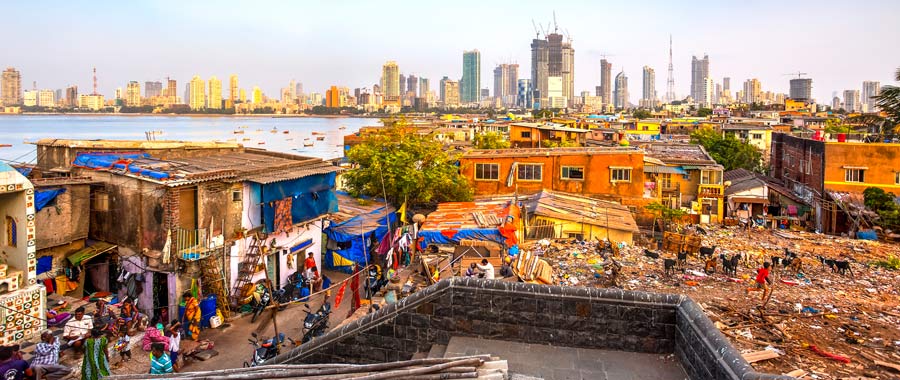In the realm of socio-economic discourse, the extremes of wealth and poverty represent two faces of the same coin, challenging the very foundations of justice, equity, and community solidarity. The Bahá’í teachings present a profound philosophical framework for addressing these disparities, advocating for a balanced and equitable society. The Bahá’í approach to eliminating the extremes of wealth and poverty transcends mere economic redistribution; it embodies a holistic paradigm that seeks to integrate spiritual principles with practical applications, thereby fostering a sense of unity and shared purpose.
At the heart of Bahá’í teaching lies the concept of the oneness of humanity. This principle underscores that all individuals, irrespective of their socio-economic status, are inherently equal. The metaphor of a tapestry can be aptly employed here; each individual is a distinct thread, contributing to the overall beauty and cohesion of the fabric. When individuals experience extreme poverty or wealth, the tapestry becomes frayed, diminishing its aesthetic and functional integrity. Hence, Bahá’ís believe that addressing these inequalities is not merely a moral imperative but a necessity for societal cohesion.
The Bahá’í perspective elucidates that economic disparity stems from systemic injustices that exacerbate social divisions. It calls for the establishment of an economic system that prioritizes justice and equity, moving beyond traditional capitalist paradigms that often favor a select few. The Bahá’í teachings emphasize that wealth should serve the needs of humanity rather than act as a tool for oppression. By envisioning an economic construct that aligns with ethical and spiritual values, Bahá’ís aim to cultivate a community where prosperity is not a privilege but a universal right.
Envisioning a society free from the extremes of wealth and poverty entails the establishment of fair and just economic practices. The Bahá’í approach advocates for the implementation of a global economic framework that promotes participation and equity. An intriguing metaphor that illustrates this concept is that of a garden. In a well-tended garden, every plant flourishes; the thriving of one plant does not come at the expense of another. Similarly, an equitable economy nurtures all its members, allowing diverse talents and contributions to blossom. This ideology calls for participatory governance, where individuals are actively involved in the decision-making processes that affect their economic realities.
Furthermore, education is heralded as a fundamental pillar in the Bahá’í teachings, akin to sunlight that permeates the darkness and fosters growth in the garden of society. The Bahá’í community emphasizes the importance of accessible education not only as a vehicle for personal development but also as a means to eradicate the roots of poverty. Empowering individuals through education equips them with the skills necessary to engage in meaningful employment, thus breaking the cycle of poverty. The pursuit of knowledge is viewed not solely as an individual endeavor but as a collective responsibility, vital for the upliftment of the wider community.
Another critical aspect of the Bahá’í teachings involves the recognition of the power of service. The act of serving others is presented as an antidote to the divisive forces of wealth and poverty. Like a river that nourishes the surrounding terrain, serving one’s community can be transformative. Individuals are encouraged to look beyond their own material needs and to seek the well-being of others, fostering a spirit of generosity and compassion. By prioritizing service, individuals can transcend the limitations imposed by wealth and poverty, creating a culture rooted in solidarity and mutual support.
The Bahá’í community also emphasizes the importance of creating and promoting social wealth, which is defined not purely in monetary terms but rather as the collective well-being of society. This concept aligns with the age-old idea that true wealth is measured not by material accumulation but by the richness of human relationships and communal ties. Adopting this perspective encourages individuals to invest in their communities, not only through financial means but by fostering connections and facilitating positive exchanges between members of society. Such interactions enrich the social fabric, reinforcing the notion that everyone has a role to play in building a vibrant community.
The eradication of extremes of wealth and poverty is, therefore, an ongoing process requiring comprehensive strategies and sustained commitment. The Bahá’í teachings advocate for a multifaceted approach involving economic reforms, educational initiatives, and community service opportunities. It is a call to action that invites individuals to become active participants in the creation of a just and equitable society.
Ultimately, the Bahá’í approach urges a re-examination of values. It compels individuals to question the societal norms that perpetuate inequality and to re-imagine a world where equity is the guiding principle. This vision is not a distant utopia but a tangible goal, achievable through collective efforts and transformative practices. By uniting in purpose, actively addressing injustices, and fostering a spirit of service, humanity can indeed take significant strides toward eliminating the extremes of wealth and poverty.
In conclusion, the Bahá’í teachings offer a rich tapestry of insights and strategies aimed at addressing one of the most pressing challenges of our time. Through the principles of oneness, justice, education, and service, a pathway emerges to a balanced society where the extremes of wealth and poverty cease to exist. Embracing this vision not only enhances individual lives but empowers communities, ultimately contributing to a more just and harmonious world.
